Kowtow: conscious consumption
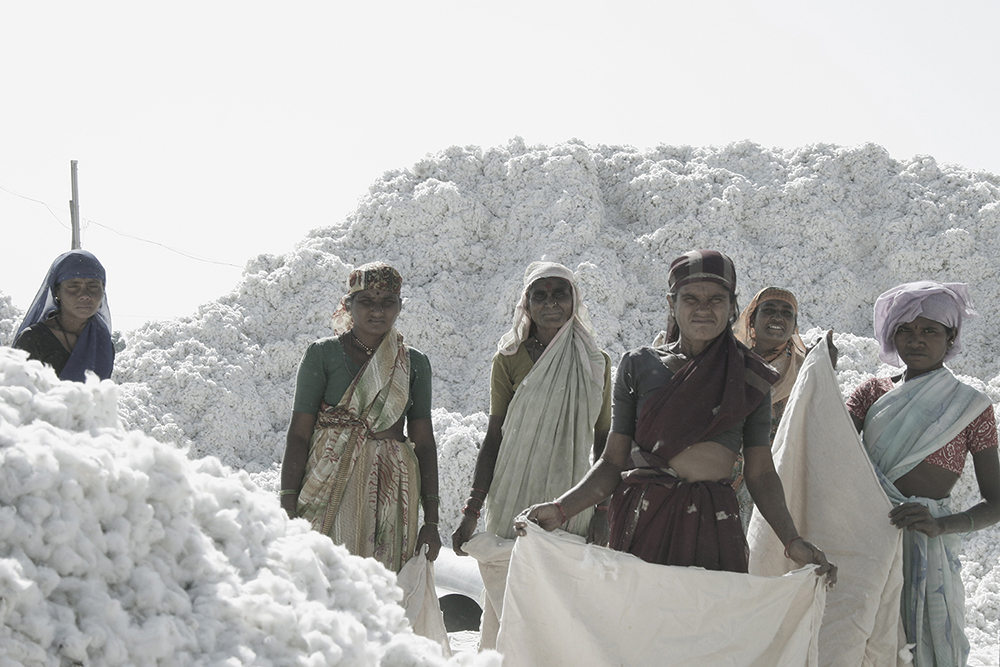
Over recent years the world has witnessed sheer tragedy at the helm of fast fashion—Bangladesh, one of the world’s largest apparel export industries (second only to China), has suffered the loss of at least 1800 workers since 2005 due to poor working conditions resulting in factory fires and collapses. Such unnecessary loss showcases the human cost of making clothes as cheap as possible, not to mention the negative impact mass clothing production has on the environment, especially the cotton industry.
According to the World Health Organisation, “Cotton covers 2.5% of the world’s cultivated land, yet it accounts for 25% of the world’s insecticide market and 10% of global pesticide sales, making it the most pesticide-intensive crop grown on the planet”. Approximately 20,000 people a year die from pesticide poisoning, with a further 3 million left with chronic health issues, and cotton is a leading cause of pesticide poisoning. Which bodes the question: is it possible for cotton—the most pesticide-intensive crop grown on the planet—to be produced in both an ethical and sustainable manner?
New Zealand label Kowtow has made answering this proposition its mission, committed to a contemporary fashion movement that uses 100% Fairtrade certified cotton with the underlying goal to bring both sustainable and ethical clothing to the world.
Gosia Piatek, Kowtow’s founder and art director splits her time between native New Zealand and London, where she leads a staff of eight and ensures the successful delivery of Kowtow’s simple wardrobe staples to more than 100 countries.
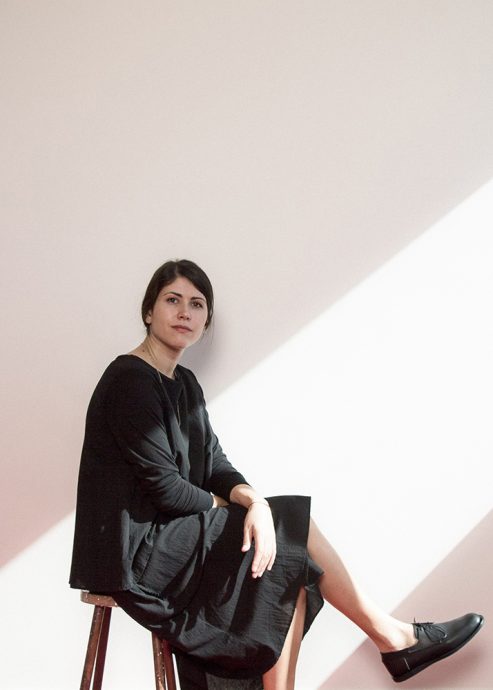
Gosia also spends a lot of time with her suppliers, ethical cotton farmers in India, which has made a big impression on her career. Speaking with raw emotion, she reflects on moments shared in farmer’s living rooms, surrounded by floor to ceiling cotton, drinking chai and chatting. Experiences such as these have given Gosia valuable insights into how cotton clothing can be produced in a manner that both protects the environment and supports individuals along the entire fashion supply chain.
I caught up with Gosia on the eve of her first child’s birth, to find out how Kowtow first found its feet in sustainable fashion.
Anna Hickey: What was the driving force behind starting a sustainable fashion label?
Gosia Piatek: I was driven to start a business that fostered an enjoyable working environment, while also being sustainable and ethical. Prior to starting Kowtow I had worked in a series of places where I didn’t enjoy the environment and I wanted to turn those experiences around. I also wanted to show others that it is possible to have a profitable business and enjoy a good life without pillaging every last little cent of your suppliers.
Kowtow started in 2007. I had just left my job and was tossing up lots of business ideas. I don’t come from a fashion background but my partner is a designer and at the time he had a t-shirt fashion label in London, so he was able to give me great advice. I caught up with a friend in a vegetarian café and she suggested I start a fair trade organic cotton fashion label. The next thing I knew I was ordering 800 t-shirts from an Indian supplier. The label grew from there.
I started the business with the idea that everything was going to be certified organic cotton, so we only use four or five fabrics and that’s it. While the limited fabric choice was challenging at first, it has contributed to the simple aesthetic we are known for and our customers really enjoy.
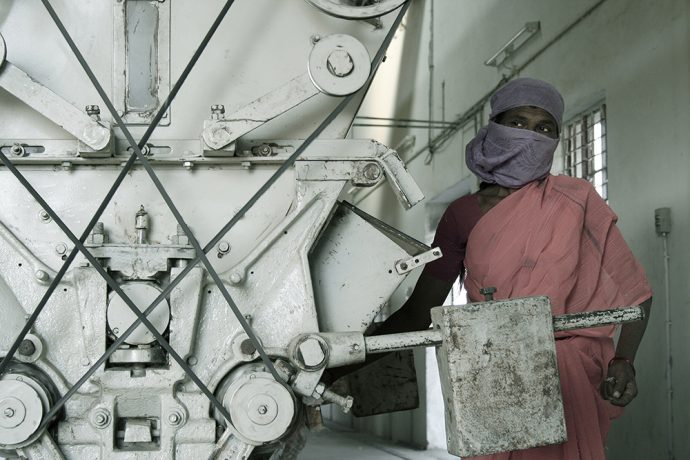
AH: What do you see as the main challenges for sustainability in the fashion world?
GP: The biggest challenge is the choice of suppliers, or lack thereof. There are only a small handful of certified Fairtrade suppliers to choose from. We focus our efforts on India as it is the best and most efficient supply chain for cotton. The western world works to very different timelines than our suppliers in India, which is a big challenge, and I am constantly managing cultural differences. For example, our stakeholders in India recently had a holiday to pray to the machines, which meant an entire day off production.
The lack of choice extends to the other materials we use in our collection. We haven’t yet found a zip supplier that is able to supply any credentials on their workplace conditions and as a result we don’t use zips on any of our products. We use buttons instead, sourcing them from Italy where they are made from recycled hemp and we can guarantee that they are fair trade.
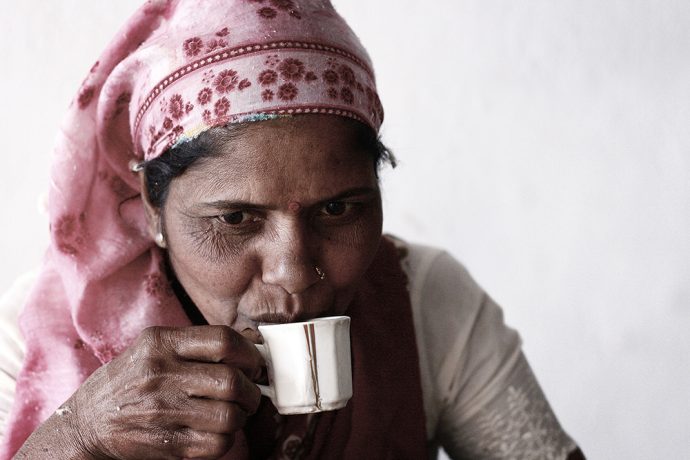
AH: Similar to food miles there are concerns around fashion miles and sustainable practice—specifically the carbon burned when fabric and clothing are transported around the world. Bearing this in mind, why did you chose to source cotton from India?
GP: The majority of organic cotton is grown in India, which is why our Fairtrade suppliers are based there. We have been air-freighting our stock since we started because of timelines and demand. Now that we have a bigger team and a production manager on board we have been working really hard to get ahead of time so the next order will be ship-freighted. We try really hard to minimise any waste—all our packaging is made from biodegradable corn starch and we reuse our cartons.
Ultimately, for us, it’s about taking small steps towards sustainability—India is far away, but we are doing our best, especially if you compare our practice to mass-produced $5 t-shirts from Bangladesh that currently saturate the fashion marketplace.
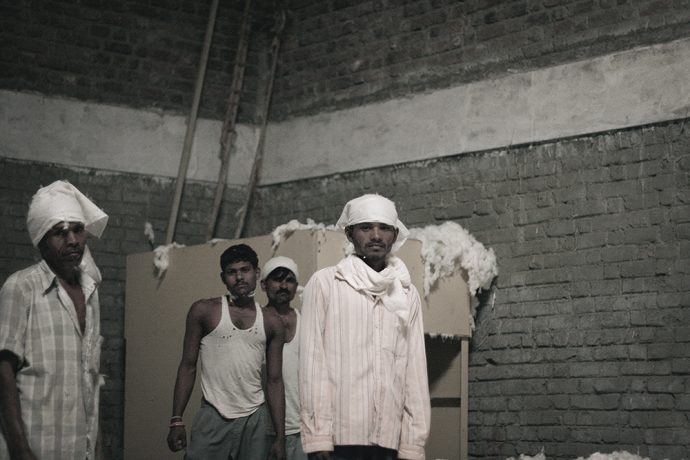
For me, it is about making sure the person at the bottom of the supply chain, the farmer, is well looked after. So often it is the person at the top who reaps all of the rewards. By working with the Fairtrade Organisation, farmers can feel assured that the entire supply chain is monitored. The Fairtrade Organisation ensures that farmers aren’t getting marked down so much by westerners so that they can’t even feed their family.
AH: What are the main benefits in using 100% Fairtrade organic cotton and fabrics dyed using the Global Organic Textiles Standard (GOTS)?
GP: Fairtrade organic cotton dyed by GOTS is really gentle on the environment. Cotton production is one of the most damaging pollutants in the world so having an organic way of growing it is really beneficial.
Fairtrade cotton comes from rain-fed plantations (rather than irrigated). The farmers use natural techniques, such as adding nitrogen to the soil via lentils and companion planting. These processes are much gentler on the environment. The fabric dying process is phthalimide free, nickel free and lead free, which is means it is non-polluting.
Consumers also benefit from this process as the cotton feels amazing and soft—a high quality garment. Twenty years ago fair trade meant brown, hippy clothes that were a bit rough. Now they are super soft, like butter.
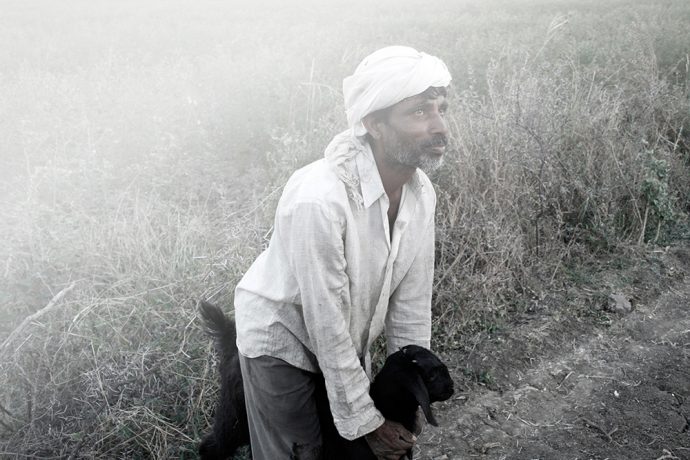
AH: Is there trickery in the fashion world when using the terms of ‘organic’ and ‘certified organic’?
GP: As a consumer you need to read labels and not trust everything people tell you. The biggest retailer of organic cotton in the world is H&M, but it’s not Fairtrade. It’s great because the cotton is organically grown but the ethics from the production side of things aren’t there, as big corporations tend to haggle with the farmers for premiums.
We are 100% organic. Every bit of our production process is derived from the farm. We do use cotton elastin for our underpants and leggings to make the products last longer, but we are very limited in how we use it. Ultimately we want as much as possible to be 100% organic Fairtrade cotton.
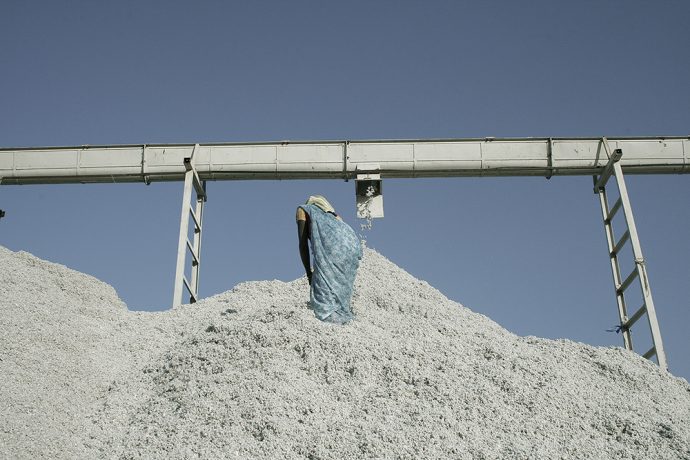
AH: Do you have any advice or mantras that you follow from a business perspective in terms of minimising your environmental impact via fashion?
GP: You don’t need to be greedy. Business can be done in a gentle manner, which is proven by the fact that we have more than 100 stockists around the world. It is possible to take fashion to the next level and be ethical about.
Thanks to Gosia Piatek for chatting with us about her inspiring label, Kowtow. The latest collection, ‘10,000 Hours’, is now available in-store and online. All images courtesy of Kowtow.